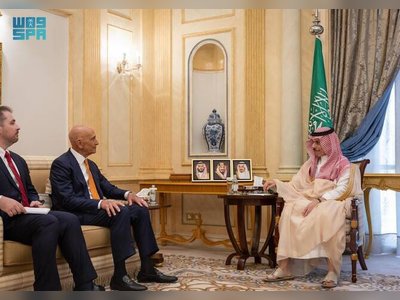
Myanmar Destroys Confiscated Drugs Worth Over $300 Million
Authorities in Myanmar's major cities burn large quantities of confiscated narcotics.
YANGON: In a significant move to combat the illicit drug trade, officials in Myanmar have destroyed approximately $300 million worth of confiscated drugs.
The destruction involved a range of substances including opium, heroin, methamphetamine, marijuana, ketamine, and crystal meth, also known as ice.
This operation took place during a ceremony attended by Yangon Police Brig. Gen. Sein Lwin.The drug burnings are particularly noteworthy given the recent UN warnings about the surge in methamphetamine production and trafficking from Southeast Asia's Golden Triangle region.
The Golden Triangle, where Myanmar, Laos, and Thailand converge, along with Myanmar's Shan State, has long been a hub for opium and heroin production due to the limited control exercised by the central government over ethnic minority militias in border areas.The UN Office on Drugs and Crime (UNODC) highlighted in a May report that the political crisis following Myanmar's military coup in 2021 has accelerated the growth of the methamphetamine trade.
This escalation is attributed to the instability caused by the civil war that ensued post-coup.In Yangon, the largest city in Myanmar, authorities incinerated drugs valued at over $117 million.
Similar ceremonies were held in Mandalay, the country's second-largest city, and Taunggyi, the capital of Shan State, regions known for their proximity to major drug production areas.According to a police official from Naypyitaw who spoke on condition of anonymity, approximately $297.95 million worth of drugs were burned across three locations in total.
The move reflects Myanmar's ongoing struggle with drug production linked to political and economic instability caused by decades of conflict.
The country has historically served as a significant source of illicit substances for East and Southeast Asia.The UN has noted that this issue extends beyond the region, affecting not only East and Southeast Asia but also increasingly South Asia, particularly Northeast India.
Myanmar's drugs are trafficked into countries such as Cambodia via Laos, with maritime routes linking Malaysia, Indonesia, and the Philippines playing a crucial role, notably through Sabah in Malaysia serving as a key transit point.In 2023, the UN designated Myanmar as the world's largest opium producer, underscoring the complexity of the challenge facing the nation.
The recent drug destruction ceremony represents an ongoing effort by Myanmar to combat its reputation as a major source of illicit drugs.
The destruction involved a range of substances including opium, heroin, methamphetamine, marijuana, ketamine, and crystal meth, also known as ice.
This operation took place during a ceremony attended by Yangon Police Brig. Gen. Sein Lwin.The drug burnings are particularly noteworthy given the recent UN warnings about the surge in methamphetamine production and trafficking from Southeast Asia's Golden Triangle region.
The Golden Triangle, where Myanmar, Laos, and Thailand converge, along with Myanmar's Shan State, has long been a hub for opium and heroin production due to the limited control exercised by the central government over ethnic minority militias in border areas.The UN Office on Drugs and Crime (UNODC) highlighted in a May report that the political crisis following Myanmar's military coup in 2021 has accelerated the growth of the methamphetamine trade.
This escalation is attributed to the instability caused by the civil war that ensued post-coup.In Yangon, the largest city in Myanmar, authorities incinerated drugs valued at over $117 million.
Similar ceremonies were held in Mandalay, the country's second-largest city, and Taunggyi, the capital of Shan State, regions known for their proximity to major drug production areas.According to a police official from Naypyitaw who spoke on condition of anonymity, approximately $297.95 million worth of drugs were burned across three locations in total.
The move reflects Myanmar's ongoing struggle with drug production linked to political and economic instability caused by decades of conflict.
The country has historically served as a significant source of illicit substances for East and Southeast Asia.The UN has noted that this issue extends beyond the region, affecting not only East and Southeast Asia but also increasingly South Asia, particularly Northeast India.
Myanmar's drugs are trafficked into countries such as Cambodia via Laos, with maritime routes linking Malaysia, Indonesia, and the Philippines playing a crucial role, notably through Sabah in Malaysia serving as a key transit point.In 2023, the UN designated Myanmar as the world's largest opium producer, underscoring the complexity of the challenge facing the nation.
The recent drug destruction ceremony represents an ongoing effort by Myanmar to combat its reputation as a major source of illicit drugs.











